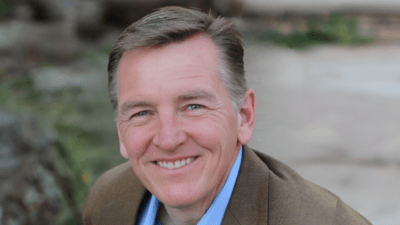BOTSWANA: Tier 2
The Government of Botswana does not fully meet the minimum standards for the elimination of trafficking but is making significant efforts to do so. The government demonstrated overall increasing efforts compared to the previous reporting period; therefore Botswana remained on Tier 2. These efforts included investigating one potential trafficking case, convicting five traffickers, and continuing to prosecute 25 defendants from previous years. It identified 24 sex and labor trafficking victims, referred all victims to care, and provided protective services in collaboration with NGOs it partially funded. The government facilitated and funded repatriation of four potential Batswana trafficking victims exploited in forced labor and provided four victims testifying in cases from the previous reporting period with witness protection during trial proceedings. The government conducted awareness-raising activities and workshops for frontline responders. However, the government did not meet the minimum standards in several key areas. It did not prosecute any new trafficking cases and suspended the sentences of all traffickers it convicted; and, as it did not amend its law to eliminate the option, it offered fines in lieu of imprisonment during the reporting period. The government did not report on efforts to identify or protect victims and did not have formal written procedures to guide frontline responders in proactively identifying victims of trafficking. The anti-human trafficking committee did not meet during the reporting period and did not report on specific efforts to implement the national action plan to combat trafficking.
PRIORITIZED RECOMMENDATIONS:
Increase efforts to investigate, prosecute, and convict traffickers and sentence convicted traffickers to adequate penalties, which should involve significant prison terms. • Implement formal victim identification procedures for use by all stakeholders, including law enforcement and immigration officials, and train officials on the procedures. • Formalize the system to refer trafficking victims to social services and ensure all victims receive protective services. • Amend the anti-trafficking law to remove sentencing provisions that allow fines in lieu of imprisonment for sex trafficking offenses. • Increase training for prosecutors and judges on Botswana’s 2014 anti-trafficking law so they can more effectively try trafficking cases. • Implement the anti-trafficking national action plan. • Continue to encourage victims to participate in the investigation and prosecution of traffickers. • Develop guidelines for frontline officials to identify potential victims of trafficking among the most vulnerable communities, including women, migrants, and the rural poor. • Continue to conduct public awareness campaigns, particularly in rural areas.
PROSECUTION
The government demonstrated mixed anti-trafficking law enforcement efforts, and officials noted the judiciary’s lack of familiarity with the Anti-Human Trafficking Act continued to impede its ability to effectively prosecute suspected traffickers. The 2014 Anti-Human Trafficking Act criminalized sex trafficking and labor trafficking, and defined trafficking broadly to include all child labor. The law prescribed penalties of up to 25 years’ imprisonment, a fine of 500,000 pula ($47,400), or both, which were sufficiently stringent; however, by allowing for a fine in lieu of imprisonment with regard to sex trafficking, these penalties were not commensurate with those for other serious crimes, such as rape. Section 57 of the 2009 Children’s Act criminalized inducing, coercing, or encouraging a child to engage in prostitution, and prescribed penalties of two to five years’ imprisonment, a fine of 50,000 pula ($4,740), or both, which were significantly lower than those prescribed under the 2014 anti-trafficking act.
The government investigated one case of potential labor trafficking, compared with investigating six cases in 2018. Officials did not newly prosecute any potential traffickers for sex or labor trafficking, compared with prosecuting 11 suspects in 2018. The government reported continuing prosecutions involving 25 defendants from previous years; experts noted judicial processes in Botswana were generally protracted. The government convicted five traffickers in two cases, compared with zero convictions in 2018. In one case, government courts sentenced two South African traffickers to 18 months’ imprisonment, of which nine months were suspended because the defendants had already spent eight months in prison; but, government courts immediately released them, and they returned to South Africa. Government courts sentenced three Zimbabwean traffickers to two years’ imprisonment, which it suspended in its entirety, and fined the traffickers 10,000 pula ($950); however, because the traffickers could not pay the fines, the Department of Prisons administered seven lashes.
The Directorate of Public Prosecution continued supporting specialized anti-trafficking units and monitored the investigation and prosecution of trafficking cases. Officials did not report prosecuting or convicting officials complicit in human trafficking offenses, although authorities acknowledged corruption as a general impediment to effective law enforcement in Botswana. The slow pace of Botswana’s judicial system and the lack of qualified interpreters adversely affected authorities’ ability to prosecute trafficking crimes. During the reporting period, the government funded and conducted trainings for civil society, journalists, prosecutors, district-level child protection committees, churches, and the private sector on trafficking indicators, the anti-trafficking law, and victim protection principles. In collaboration with an international organization, the government conducted a judicial colloquium for judges and magistrates on the anti-trafficking law. Additionally, the police service continued to include a human trafficking module in its curriculum to educate recruits and in its in-service training for officers on the anti-trafficking law, victim identification, and investigation of human trafficking cases.
PROTECTION
The government increased efforts to identify and protect trafficking victims. The government identified 24 foreign national sex and labor trafficking victims, compared with identifying 13 victims in 2018. Of those victims, seven were from Pakistan, six from Ghana, four from Sierra Leone, two from Zimbabwe, and one each from Tanzania, the Gambia, and Uganda. Officials reported coordinating with NGOs to refer all identified victims to facilities providing shelter, medical care, and other services, as in 2018. The government did not provide formal written procedures to guide social service, law enforcement, or immigration officials in proactively identifying victims of trafficking and did not fully operationalize the victim referral measures detailed in the 2014 anti-trafficking act. There were no reports officials penalized victims for unlawful acts traffickers compelled them to commit; however, some victims may have remained unidentified and subsequently penalized due to the government’s failure to employ systematic measures to identify trafficking victims among vulnerable populations.
The government facilitated and funded repatriation of four potential Batswana trafficking victims exploited in forced labor in Japan. The government reported securing 3.69 million pula ($349,800) for financial year 2019/2020 for services for victims of trafficking, repatriations, and staff training, the same amount it spent in 2018. In addition, the government gave one million pula ($94,800) to one NGO for delivery of protective services, although the government did not refer victims to the NGO and did not report if the NGO separately identified and assisted victims. The government provided four victims testifying in cases carried over from the previous reporting period with witness protection during trial proceedings, which included security escorts before and after their trials to ensure their safety.
PREVENTION
The government demonstrated mixed prevention efforts. The Anti-Human Trafficking Committee, established under the Ministry of Defense, Justice and Security (MDJS) in 2017 in accordance with the 2014 anti-trafficking act, did not report whether it met during the year, compared with convening one time during the previous reporting period. A lack of coordination on the national level continued to impede anti-trafficking action throughout the country. The government reported it made efforts to implement the 2018-2022 national action plan to combat trafficking, but did not report on specific objectives addressed or outcomes achieved. The MDJS held a national commemoration of the World Day Against Trafficking in Persons in July 2019 to raise awareness among the general public; the government did not report how many people the event reached. Officials conducted seven anti-trafficking workshops for social workers from all 26 public hospitals, Industrial Court staff, elected officials, first responders, and students, a decrease compared with holding 11 anti-trafficking workshops in 2018. The Botswana Police Service also conducted awareness raising sessions with secondary school students at various locations. In collaboration with an international organization, the government reviewed recruitment agencies in the country in order to become a member of an international recruitment integrity system, which set benchmarks for ensuring ethical recruiting practices. The government continued to participate in the Southern African Development Community regional data collection tool by uploading information about trafficking cases, victim and trafficker profiles, and sharing information with countries in the region. The government reported it regularly conducted labor inspections throughout the country, but did not report sanctioning individuals or firms who may have subjected individuals to trafficking. The government did not make efforts to reduce the demand for commercial sex acts.
TRAFFICKING PROFILE
As reported over the past five years, human traffickers exploit domestic and foreign victims in Botswana, and traffickers exploit victims from Botswana abroad. Residents of Botswana most vulnerable to trafficking are unemployed women, the rural poor, agricultural workers, and children. Some parents in poor rural communities send their children to work for wealthier families as domestic servants in cities or in agriculture and cattle farming in remote areas, increasing their vulnerability to forced labor. Traffickers may exploit young Batswana serving as domestic workers for extended family who may be denied access to education and basic necessities or subjected to confinement or verbal, physical, or sexual abuse-conditions indicative of forced labor. Criminals exploit some Batswana girls and women in commercial sex within the country, including in bars and along major highways. Organized trafficking rings subject some Batswana women to trafficking internally or transport women from neighboring countries, such as South Africa and Zimbabwe, and subject them to sexual exploitation. The government reported some traffickers targeted potential victims via social media, including through advertising fake employment opportunities, with the purpose of exploiting victims in forced labor or sex trafficking. Officials stated traffickers subject adults and children of the San ethnic minority group to labor conditions on private farms and cattle posts in Botswana’s rural west that may rise to the level of forced labor. Traffickers likely subject some undocumented migrant Zimbabwean children to sex trafficking or forced labor in Botswana.
Source: U.S Department of State, Bureau of Oceans and International Environmental and Scientific Affairs









